November 30, 2020
Smitten

I loved EVERYTHING about this profile of Deb Perelman in The New Yorker. I had no idea that she was an old school blogger before she was a food blogger proper, but I should have guessed—and it’s possible that this is why I love her blog as much as I do.
Incidentally, my blog (if not this blog, but rather my blog in general) turned twenty years old last month. To mark this occasion, I just went back and found my OG blog in the Way Back Machine Internet Archive—the first archived post is VERY EMBARRASSING and possibly not anything to celebrate or commemorate. To be so obviously needy. It’s a miracle I had any friends—and not surprising that I didn’t have a boyfriend.
But—it’s hard to altogether rue the person who got me here, which is not a bad place to be. She was trying (really, really, REALLY hard).
Some sensibilities of old school blogging are totally baked in though, integral to my process. I recognized this from Deb Perelman: “I try to have a schedule, but I’m extremely bad at keeping schedules. I have watched corporate blog after corporate blog go to crap, because there was a posting schedule where you had to write five posts a day. I think that everybody would rather just write when you have something good to say.”
Or even when you have nothing good to say, but feel like checking in anyway.
October 21, 2020
Taking Stock
I am not super into memes, but I’m currently in a mindset that requires a bit of grounding and also anything Pip Lincolne does, I want to do too.

Finding: That once again, publishing a book is making me feel vulnerable like nothing else. It’s TERRIBLE. At least I know what it is this time. A combination of “Why is everybody looking at me?” and “Why isn’t everybody looking at me?” at once. Shawna’s post yesterday spoke to me.
Wishing: For Covid infection rates to go down.
Cooking: So in love with Smitten Kitchen’s Spaghetti and Meatballs, and the carrot white bean burgers, both of which we had this weekend. I don’t know what I am making for dinner tonight…
Making: Hatching plans to knit a baby blanket for a friend. I suppose the only thing I’m actually making right now is a new draft to my novel that has been long in-progress, but it feels very good to be doing that now. And also: plans for next year’s garden.
Sipping: Star to Fall blend tea!
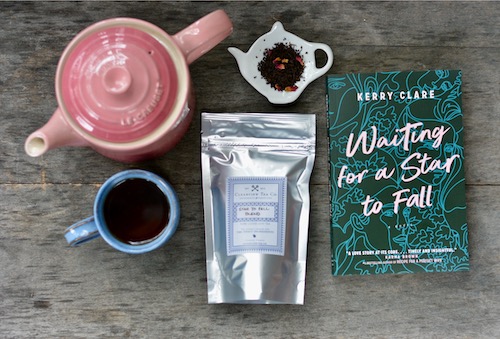
Reading: Big Friendship, by Aminatou Sow and Ann Friedman

Looking: At the leaves turning yellow outside my kitchen door.
Listening: All I want to do is listen to songs that were played on Top 40 radio during the year I was 20, like “I’ll Be,” by Edwin McCain. It’s ALL EAGLE-EYE CHERRY ALL THE TIME OVER HERE. I think this is what happens to people once they turn 40. (And Taylor Swift’s folklore, obviously.)
Wishing: For the polls to be right.
Enjoying: The Storygirls Podcast!
Liking: How wonderful it is to take my children to school every day
Loving: The Searcher, by Tana French and Mexican Gothic, by Silvia Moreno-Garcia, both atmospheric reads that I’ll be writing about tomorrow.
Buying: Choco-Sol Halloween Chocolate after reading the latest edition of Five Minutes for the Planet

Watching: Season 4 of Schitt’s Creek which I am watching very slowly, because I watch TV about once every three weeks. Whatever the opposite of bingeing is—abstaining?—is my approach.

Hoping: That people buy my book, and then we get to celebrate that plus a new US president the following week
Needing: A new US president. It is not fair that such a stupid man has caused me to be scared and worried for four years.
Wearing: My Desserts and Skirts zebra tunic, OBVIOUSLY. The tunic I wore until it had holes and then purchased a replacement.

Noticing: That my anxiety towards illness is going to be what my kids talk to their future therapists about.
Sorting: The porch and garden for winter. Cleaned away a lot of clutter, and purchased a pretty pot of fall flowers for beside the door.
Getting: Used to the ease of my children having their extracurricular activities (Girl Guides and piano lessons) online and so much less running around.
Craving: Indian takeout for lunch!
Coveting: The Gladstone Press edition of Wuthering Heights

Feeling: A bit lugubrious (thankfully temporary), but also grateful for so much
October 8, 2020
You Get to Frame Your Own Picture

You don’t have to read the books on the shortlist. You don’t have to watch the debates. The world won’t end if you don’t know the latest numbers, unless you work for Public Health. Your timeline isn’t neutral. Neither are your Google searches. You are allowed to not be interested. You are permitted to sit this one out.
What gets to be important? Did anyone catch the sunset last night? I’m thinking about a person who doesn’t have their head in the sand, and how they have absolutely no idea what’s going on underground.
Who’s been keeping up with the cloud formations? Do you know how little bearing the stock market has on most people’s lives? The way the patch of sunshine travels across my kitchen table, which is a story I’m tracking. It’s important to pay attention.
A long time ago, you got to design your own internet, with the assistance of your aunt who’d send your forwarded jokes. She was a curator then, although we didn’t call it that, but the rest was up to you, the sites you bookmarked. I had a Google reader, and a list of blogs and websites that I’d check in with everyday.
But then Google killed their Reader–it’s harder to drive advertising with users who navigate the internet on their own say-so. And now it’s Facebook who decides what we should see, what we will watch, what we read, and what we’re thinking. And while at least newspapers and journalists control the narrative with some degree of responsibility and a sense of the importance of their role, it’s still never been the entire story. Always, there’s something else going on outside the frame. And something else is almost everything.
This week, I’ve been listening to the “You’re Wrong About” Podcast, after at least two people recommended it online. While various overwhelming calamities have been occupying the minds of many, I’ve been all wrapped up in the courtship of Charles and Diana, and I’m not sure why this matters any less than all the other kinds of other soap operas going on concurrently.
The other night, I was reading to my children from Madeleine L’Engle’s A Ring of Endless Light, and it referenced “Cartesian,” but my daughter thought I meant “Khardashian,” but it didn’t matter anyway, since she doesn’t really know anything about one or the other.
I think therefore I am?
This is the book where Grandfather, anticipating Twitter in 1980 (when the book was published), says to Vicky, “Maybe instant information isn’t good for us. We can’t absorb it.” And I think about this all the time, about how there is nothing “natural” about the news cycle. It’s as organic as the economy. And the idea that we have a duty to pay it our attention, to centre our experience of the universe around it. Like its a fire we’re all drawn to, but it’s not, and who profits?
Ten years ago, I started working at 49thShelf, which means that for a decade, people have been sending me lists of books and authors. In the beginning, most of the time those authors were white, and around 2012 people started calling this out. Why were so many of them men as well, and there were people who got angry about this, people who didn’t see race or gender, but just focused on excellence, and it was just a coincidence that all their favourite books were written by white men.
In 2020, very few people would dare submit a list that includes only a handful of old white guys, and not just because doing so would make me go YIKES!, but also because it’s just really boring. Because it betrays the narrow limits of a reader’s experience, and most of us don’t like to brag about those, and all this is relevant because it shows how arbitrary is the way that things are framed, among them literature, and “the canon,” and how I used to take those all-white-guy lists for granted.
The way I used to see them and think I was looking at everything.
June 4, 2020
The Trouble With Memes

On Tuesday morning, Instagram went black. User after user started posting black squares in support of the fact that Black people deserve freedom from violence and murder by police, and this came a week after the murder of George Floyd in Minneapolis, a day after corporate brands were busting out all over with their support for the Black Lives Matter movement, when the reasonable suggestion was being made by many that right now was a moment where white social media influencers could “mute” themselves, taking a step back from their platforms to amplify the voices of Black leaders instead. In the music industry, two Black women—Jamila Thomas and Brianna Agyemang—had already launched #TheShowMostBePaused for Tuesday June 2, an initiative to show that they and others in music would “not be conducting business as usual without regard for Black lives.” And somehow this idea was spilled beyond their industry and over onto Instagram in general, utilizing the symbolism of the black squares, and users began adding the Black Lives Matter hashtag…because Black lives do.
But the effect of this proved disastrous, and because influencers are gonna influence, the effect was also huge. By Tuesday morning, the Black Lives Matter hashtag (essential for organizers and activists) was lost to a sea of dark squares, the noise of well-meaning white people’s efforts to be quiet. Though of course not everyone was white, and there were many Black people who were also part of the meme too, no matter how it absurd it may seem that any Black person should be silent at a moment when Black voices have never mattered more.
But this is how memes work. There is a sense of obligation, in addition to one of reflex, and of course, it’s easy. Although it’s not as easy to share a meme on Instagram as it is on other platforms, where sharing and retweets are built into the system. (They weren’t always. Once upon a time, pre the RT button, one had to go out of their way to share on Twitter, copying and pasting in order to post other people’s content.) On Instagram, users require a external reposting app (or screenshot captures) to share posts beyond the ephemerality of Instagram Stories—and this extra step required is why Instagram has long been my social media platform of choice. The extra step creates enough friction for users to be more thoughtful about what they’re posting, and it also makes it less trouble to post original content, something users have created themselves.
(This does not mean that Instagram is an intellectual oasis. But sometimes, it’s one of the less stupid sites on the internet I see.)
The black squares were so simple though, their symbolism poignant, and the matter was urgent with real lives at stake—so I understand why someone would leap on the bandwagon without thinking. And it’s not so much this particular bandwagon that I am critiquing here, because the fallout was dramatic enough to be obvious, but instead I want to critique the “without thinking” itself, which is the essence of meme culture and meme activism, undermining political messaging and making the internet a much less interesting place.
Of course, memes work. Right wing movements owe much of their success in the last five years to garbage social media accounts stating simplistic or misleading ideas, and demanding that your great uncle share if he agrees, which he does, and he did, and this is probably why some of you quit Facebook. More recently, however, progressive groups have tried similar approaches, which is why your enlightened uncle on the other side is sharing posts from “North 99,” which means that your Facebook feed is a little bit less racist, but it certainly isn’t any less dumb.
But what would an internet without memes even look like? And here I will hearken back to the glory days of blogging, to the first five years of this century when most people were barely online. Where instead of social media and algorithm, we had blogs instead, where everybody was a different kind of social misfit, and everything was a little bit technically clunky. If you wanted to put something online, you would have to write it in your own words, instead of borrowing somebody else’s—unless maybe they were the lyrics to a Dar Williams song.
Now this kind of nostalgia is as substantial as a meme is, so I’ll stop here, but I share it to show you where I’m coming from, the kind of “interesting” I’m looking for when I’m scrolling around online.
What if you believed in the power of your own words and ideas to speak up and make a difference? Just think of what kind of power that could be. What if, instead of a black square, you shared an image from your field of expertise and wrote some paragraphs about your thoughts on racial violence from your perspective as an art appraiser and as a parent? What if you curated your feed into a gallery of Black voices? What if you posted a picture of the view from your window, accompanied by a sentence or two about how that view looks different to you now that you have a new understanding of the murderous brutality of police violence? How does your sky look different today because of that? I’d really like to know. (And you don’t even have to tag your Black friends in this post, because none of this, to them, is news.)
What if it wasn’t even about what you posted, but instead about what was in your mind?
And if you weren’t ready to share that yet, if you still had learning to do, instead you could sit back and listen?
April 8, 2020
What’s Your Blogging Challenge?
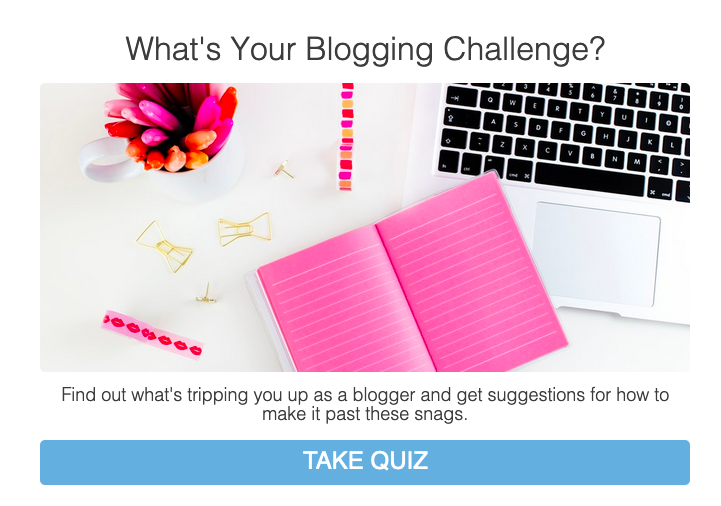
Looking for a diversion? How about a quiz? In which I nail your biggest challenge in blogging, and give suggestions for how to overcome that challenge and achieve your blogging goals.
January 14, 2020
Back to the Blog: One Year Later
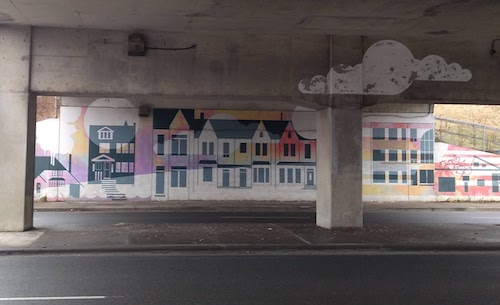
I’m certainly no Faith Popcorn, but I think I called it. Almost exactly a year ago, as part of my 2019 intention to conduct myself with more audacity, I declared The Back to the Blog Movement. Was I not blogging because the world no longer made any sense, or had the world stopped making sense because I wasn’t blogging? And as the near year began, I decided perhaps it was the latter, and embarked on a reset and rediscovery of the blog and its myriad possibilities.
And I wasn’t alone, because because my Back to the Blog post got tons of responses, brought new readers and blogs to my attention, and—in the true tradition of old-school blogging—inspired a handful of other writers’ blog posts, including Meli-Mello (my blogging friend of more than a decade!), Rebecca Rosenblum, Shawna Lemay, and my fave swimming blog.
As the year went on, the movement picked up steam, as CanLit blogging pioneer Bookninja returned to blogging, and Steven Beattie resurrected his blog That Shakespearean Rag, and (tongue in cheek, of course) we all know that it’s when men start doing things that people begin to pay attention. (I find blogging and gender fascinating. Of course, it’s impossible to talk about blogging in general terms, because blogs can be infinite different things, and a gendered lens only makes it more so. I once read an entire book about the history of blogging that didn’t have a single woman in it [nary a mommy blogger, nor a knitter, even!] save for the one woman founder of Blogger, who only appeared in the book while running out of a meeting in tears.)
It was good to have these book blogging stalwarts back, and to have connected with other bloggers too throughout the year so that my own blog-reader got longer. I also started a weekly series called Gleanings, in which I went back to the blog in an old-school round-up sense, posting links to the pieces (at blogs and elsewhere) that made the internet a worthwhile place for me to be a reader.
In March I wrote the post “Why Your Own Small Corner of the Internet is Going to Make the World a Better Place”, framing blogging as a way of taking back online spaces, countering the toxicity and meaninglessness of a lot of current internet discourse. “Blogs are important in 2019 because they aren’t underlined by corporate interests, because what parts of them we read aren’t determined by algorithms, because of their focus on language at a moment when politicians are making meaninglessness into an art form, because of their obscurity even and how they give us the freedom to explore off our own beaten track, because they’re not part of an industry that’s flailing, dying, desperate. There’s nothing desperate about a blog. ”
It was the spirit of blogging (and audacity!) that carried into my two big projects of last year, establishing the boutique bookseller Briny Books and my online blogging course Blog School. The idea that small things matter to real people, that little steps can take us somewhere, guided the same DIY ethos that has been inherent in blogging since the beginning. From 20 years (!) of blogging, I have learned that the path is meandering, but it takes us places, and that we get there by putting one good post in front of the other, by simply not stopping. Even when we’re tired. Even when it seems like nobody is reading. Even when the world doesn’t make any sense, but it’s when the world doesn’t make sense that we need blogging most of all.
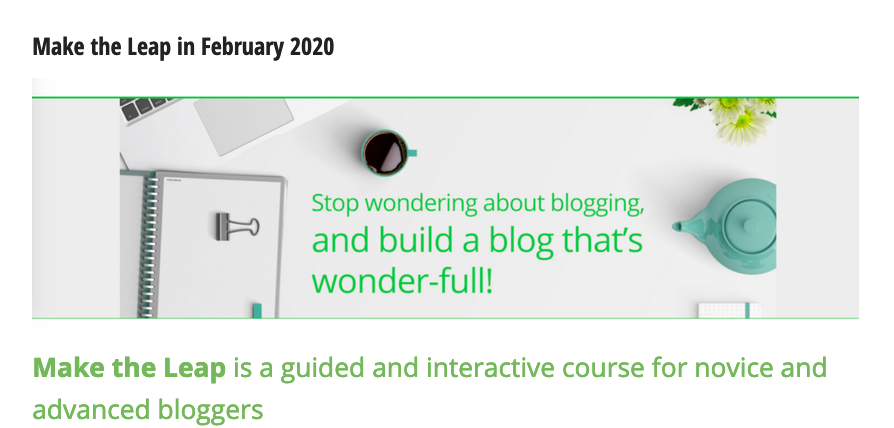
MAKE THE LEAP is the guided and interactive version of my online course. It’s running throughout February, and it’s an ideal program for writers looking to make the leap to blogging with guidance, feedback, and community engagement. I’m looking forward to spending the month working with a great group of writers, having fun pushing the limits of what blogs can do, and reading and sharing inspiring posts. I hope you’ll join us. Spaces are still available, including one last discount space for students already enrolled in FIND YOUR BLOGGING SPARK.
November 26, 2019
Slow News
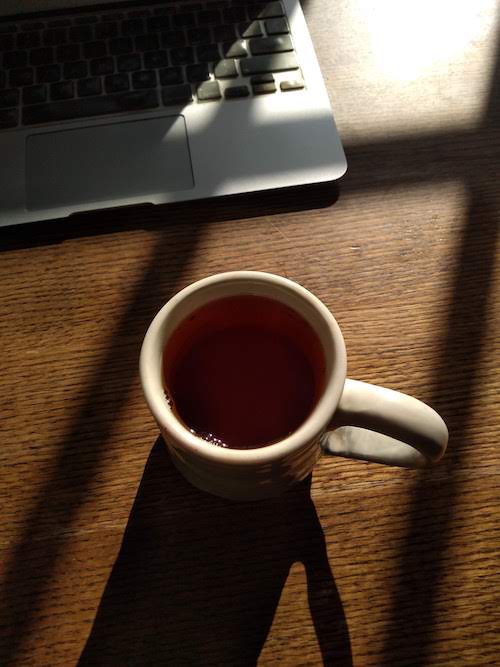
It was the Amber Alerts that started it.
But no, lets back up. I’ve been on Twitter for almost a decade, and once upon a time it was a platform that served me well—I made friends, was referred to wonderful things to read, participated in in-jokes, pondered pop-culture trivia, was able to tell people I admired just how much I liked their work. Twitter was a bubble, but the best kind. When Rob Ford was elected Mayor of Toronto in 2010, the breaking news was a devastating collective experience. Not a peep in the Twitterverse (or mine, at least) had indicated that such a thing was possible. We were talking about echo chambers. I would consider how disappointing it was that Twitter wasn’t the world.
But then came Gamergate, which changed everything, although I didn’t know it at the time. And suddenly Twitter was the place I went to argue with Pro-lifers and have men with terrible beards call me a cunt. And then eventually even those people ceased to be actual people with names and faces (and beards) and became cartoon avatars with strings of numbers after their names and the Trudeau Must Go hashtag in their bio. And now the fact that Twitter is not the world seems like an actual blessing—which is not to say that Twitter has not changed the world somewhat in its despicable likeness. But still, that the world is not Twitter is an idea I now cling to for hope.
I am so glad that I’ve gone Back to the Blog this year, for more thoughtful and meaningful connection and engagement. Because I think that Twitter and I might be totally done. We’re long past the point where I am compulsively refreshing my screen and scrolling in a vain attempt to have the world come together in some kind of narrative sense, to find the answer. (Olivia Laing’s piece on her Twitter addiction really resonated with my own experience.) I took Twitter off my phone years ago, because it really didn’t need to be my constant companion.
There is no suggestion of an answer at all anymore, no complexity. Instead, there are people who are angry about being woken up in the night by Amber Alerts, and people who are angry about people who are angry about being woken up in the night by Amber Alerts. And here I am with my phone alerts on mute, and I just have no fucks to give about any of it.
Once upon a time, I liked Twitter, because even amidst the men who called me a cunt or the Christians who called me a baby murderer, I appreciated learning about other people’s points of view (not those people, obviously) and it was really how I got my news. But I’ve since found another way.
‘But not reading the paper only kept me from not knowing things; it didn’t keep them from happening.’
‘Maybe instant information isn’t good for us. We can’t absorb it.’
—Madeleine L’Engle, A Ring of Endless Light
I still get a newspaper on the weekends, as I have for years, but in the last year, I started buying and then ordered a subscription for The Guardian Weekly. And because it’s a magazine instead of a newspaper (which always feels stale after a day), it hangs around all week, and everybody in our house reads it. There are book reviews, and culture pieces, and news from all over the world, and long-form pieces, and summaries of breaking events. It’s great, but even better? It always arrives in the mail about a week after the fact. Sometimes even longer. So that much of the “breaking news” by then has been put back together and healed over again.
And I love it.
There is context. There are facts. Instead of compulsively refreshing for it all to make sense, I have waited—and then sometimes it even does make sense by then. The news is also finite, which is splendid, and there aren’t Nazis (except in stories on the rise of white nationalism).
What would happen if you had an unpopular opinion and kept it to yourself? What would happen if your consciousness wasn’t displayed upon a ticker-tape for everyone to see? What would happen if people stopped beginning sentences with, “Am I the only one who…” or sharing unpopular opinions about food, or even having opinions at all about food.
What if you just ate your lunch?*
*After photographing it and posting it on Instagram, of course, because not all social media platforms are dead to me yet.
September 24, 2019
Preoccupations
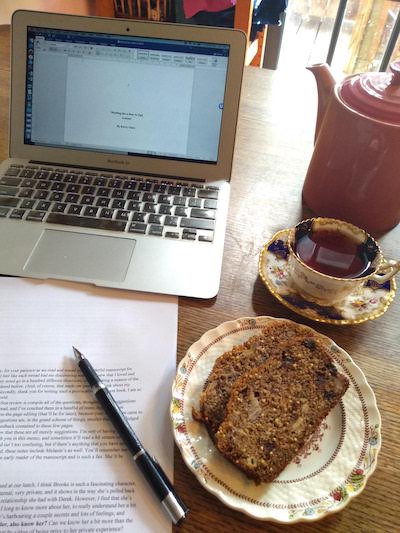
In my blogging life, I’ve made a point of trying not to apologize for the focus of my posts. I think that a sustainable blog should be about what one’s life is about, or even that it has to be about that in order to be sustainable. So we shouldn’t worry about our blogs being all about our new babies, or our illnesses, or vacations, at least not if these are what our lives are all about. Whatever our preoccupations: we get to blog them. And for me, lately, those preoccupations have been all the things that I’m making—Blog School, Briny Books, and working on revising my novel, which is due partway through October. The novel in particular, which I’m focussing on for 90 minutes every weekday by blocking social media apps on my phone and my laptop and getting down to business. I spent most of last week making notes on my manuscript, adding my editor’s with them, asking questions, and suggesting possibilities. Kind of like marking out the space in a field where the work must be done, where to get digging, and this week that work has begun in earnest, and I love it. This might be my favourite part of the entire novel writing process (but then I think I say that about every part of the novel writing process). Still discovery, just as the first draft is, but instead of discovering plot points and twists, I’m discovering patterns and connections that I might not have seen the first time around. Adding depth and texture to the story I’m telling, and so much it seems like it’s beyond my control. As though I’m merely a conduit. Such as the part I figured out yesterday, the familiar and yet archaic word that my character ponders the meaning of. I don’t actually know the meaning either, so I looked it up, and the definition of the word turned out to be precisely one of the central images of the entire book, as revealed in the final third. I had no idea, but the book knew. And my job at the this point is just to let all these connection happen and allow the light to come through.
September 12, 2019
What Kind of Blogger Are You?
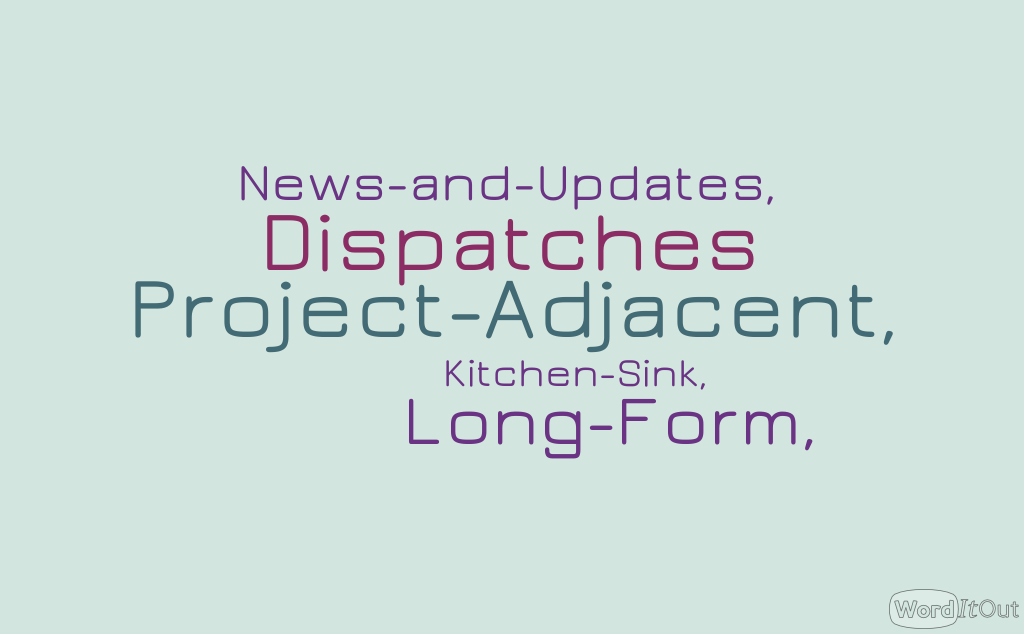
I made a quiz: What Kind of Blogger Are You?
And okay, to say there are but five kinds of bloggers is definitely reductive, but I give you these five different kinds of bloggers just to demonstrate how divergent people’s different approaches to blogging can be. And to emphasize that these five categories aren’t meant to be the end of the question of “how should I blog?” but instead the beginning of a process of the blogger gaining a broader understanding of their approach to and vision for their blog and then daring to venture forth to make/design/shape a blog that suits one’s own creative purposes and even makes one’s experiences richer.
Project-Adjacent Blogger: Your ideal blog is part of another project that you’re working on—this is great for artists, writers, or entrepreneurs. You use your blog to keep track of your progress, to share interesting ideas and revelations about your work, and to incite interest in your project. (You can also do this kind of blogging on your social media platforms.) Your blog can be easy to maintain because—ideally—your central project delivers you content all the time and it can fit nicely into your schedule. Your blog can also help you maintain your passion, connect with a like-minded audience, and think through problems with whatever it is you’re working on.
A Long-Form Blogger: Brevity is not for you, and Twitter is stupid and exhausting. No, your blog is all about depth and connections and who says that a blog can’t have footnotes! You’re driven to write your posts by genuine passion and curiosity, though you must be careful to pace yourself and not become too overwhelmed by the labour of your blog. You love that the work you’re doing on your blog (deep and thoughtful) runs counter to everything that’s so terrible about the internet. You do remember to break up your posts with images, however, with makes them much more reader-friendly. You might want to think about offering readers the alternative of receiving your posts via email as well, so check out some newsletter platforms.
A News-and-Updates Blogger: Truth: you’re just not that keen on blogging. And that’s okay! But it’s great to have an easily-updatable part of your website and having a blog helps your website’s search engine rankings too. You update your blog when you have news to share or an event to publicize. For you, the blog is a very practical tool.
A Dispatches Bloggers: Your blog is where you report back from the front, whether that front is an exotic locale (maybe you’re a travel blogger!) or from amidst a pile of dirty laundry (maybe you’re a mommy blogger!). Your blog is a way for you to stay connected with people in other places, and deliver the news of how it is where you are. Your posts are usually brief but frequent, and some readers might find them mundane, but those readers are not your readers then. One day you will look back and be very grateful for the record you’ve kept of this time in your life (instead of just posting your story as a Facebook update and sending it out into the ether…).
A Kitchen Sink Blogger: And by “kitchen sink,” of course, we mean “everything but the…” Your blog is an array of your fascinations and your preoccupations—it’s all a bit random, but YOU are the through-line. It’s a bit self-indulgent, but shouldn’t any unpaid labour be just that? This kind of blog is especially interesting (and radical) in a moment where online identifies are supposed to be tidy and streamlined. But not you—you’re keeping the internet interesting. And what an excellent public service that is!
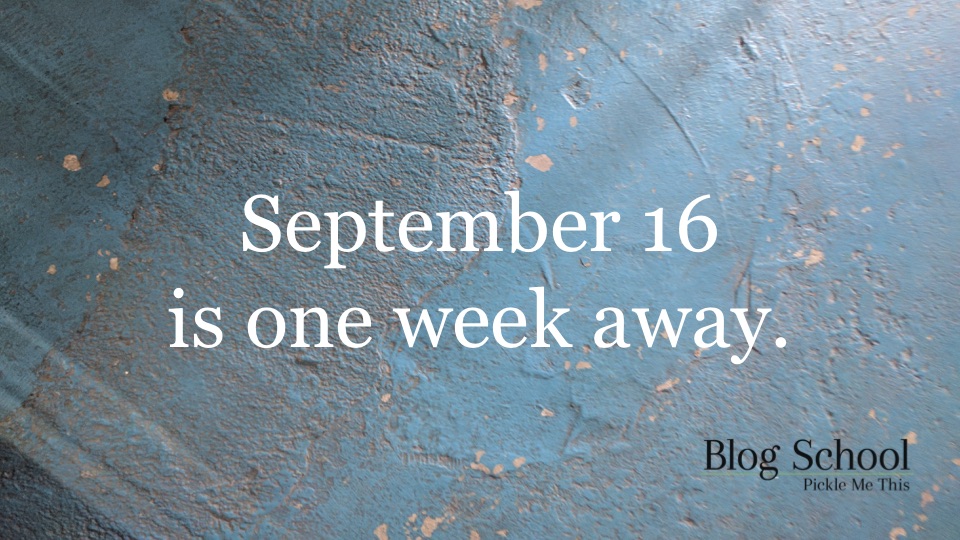
August 23, 2019
The Opposite of Scrolling
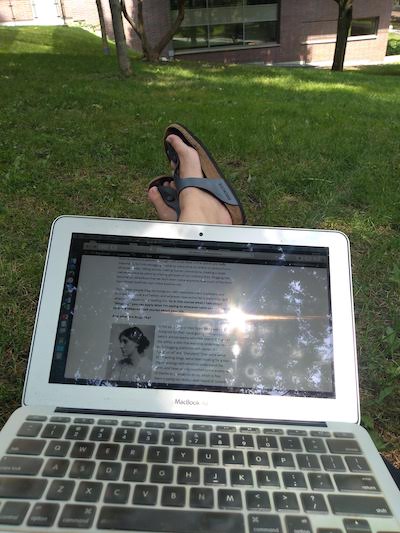
True confession: I don’t have that experience that so many people describe of social media, how scrolling through your feed just makes you feel like your own experience is inadequate, because you don’t go on fancy vacations and have never had the means to hire a decorator, and have never once had your photo taken in a field of sunflowers.
And yes indeed, part of the reason I don’t feel those feelings of inadequacy is because I have a pretty nice life, with health and happiness—I am also RIDICULOUSLY good looking, but that’s another story*—even if I’ve never had the means to hire a decorator and while we once did indeed visit a lavender field, all the plants had been stunted by a late season frost.
(I suspect it also helps that I tend to follow real humans whose photos were not all professionally shot on a mountain top during golden hour. #SponsoredPost #Partnership #SoBlessed)
But that’s only part of it. A huge reason why I tend to have a positive experience on social media is because, like many others, I don’t use these platforms passively, but instead I engage with them in an active way. I post photos, tell stories, reach out to friends, solicit feedback, share jokes, and heartaches, frustrations, insights and ideas. Each of my posts, no matter the platform, a kind of message in a bottle—except that it’s different from a bottle for the likelihood I’m going to get some kind of response.
And it’s that response I’m looking for, actually, every time I log in to Twitter, Facebook or Instagram—the first thing I do is check my notifications. (Not unrelated: turning OFF all notification alerts, so that I ACTIVELY have to seek them out, has improved my quality of life. So does not having Twitter or Facebook on my phone.)
So that what I get from social media (when I seek it out. Being deliberate is important) is actually community, genuine connections, friendship and support. And yes, I also want to see photos of your vacation, but it’s easier to not feel depressed when you’re in Hawaii and I’m in Toronto and it’s February when I don’t feel like I’m utterly alone in the world and also when I can scroll back and see a photo of the pretty mug of hot chocolate I posted yesterday. (Instagram is also about the beauty of small things and quiet moments. This matters to me a lot.)
I first started thinking about this the other week while I was listening to this radio interview with Mark Kingwell (“Canadian philosopher Mark Kingwell examines the idea of boredom and our digital devices”) about the dangers of passive scrolling. Kingwell says, “We’re not participants; we’re lab rats and the advertisers are gathering our data, and they’re feeding it back to us in forms like triangulation of desire. They are treating us as resources and they don’t care about you as an individual. They care about your data and about your preferences. So yes I do think that all kind of feeds back.”
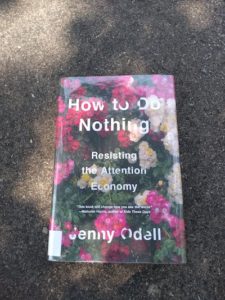
But when you do participate, you complicate things with your humanness. (When you participate by blogging on your own website, you complicate things even more, and challenge the idea that the web is a corporate space wholly navigable by algorithm, and this is no small thing!) The opposite of passive is active, and the opposite of scrolling is creation. Yes, for some the answer might be to disconnect from social media and online life altogether, but for most of us something more nuanced is required. (Jenny Odell writes about this splendidly in How to Do Nothing: Resisting the Attention Economy.) The answer is first to be more conscious of how we use our attention online. The second answer to aspire to have a rich and engaged life off the internet. And the third is to be an active participant in online culture. Stop scrolling, and make stuff.
Because you’re Somebody. In fact, we all are.
And even better? I really believe that being an active participant in online culture can improve other parts of your experience IRL. (This is what I mean when, in my blogging course, I talk about how having a blog can make your life richer.) Yes, much of online experience is aspirational, but I think it’s weird that we wholly dismiss aspiration as a bad thing. How can it be, really, if these aspirations are ones it’s possible to realize?
There are so many books I’ve read, and places I’ve visited, cakes I’ve baked, and things I have seen that have been so incredible to experience—things I never would have known about if I hadn’t seen them on Instagram first.
I also remember in the months after my first child was born, when I was (though this was only evident to me in retrospect) deeply unhappy and the online images I was presented with of “perfect motherhood” didn’t actually make me feel less-than, but made me better, that a life beyond “lying on the floor half-naked and weeping” was actually possible. It was important for me to believe that it was, that one day I’d get dressed again.
So many times, the things I’ve seen online have kicked my ass (in the best way) and forced me to get out there in the world.
Because the world is interesting, but also because, otherwise I’d have nothing to blog about, to write about, to post about. And yes, there was that vastly overpriced soft-serve place near my house whose ice cream cones looked fabulous in my Insta-feed, but didn’t taste any better than an ice cream a quarter of the price that came off a truck—but that place actually went out of business. And it’s really not all as superficial as that.
What would happen if you went out of your way to find a flower to photograph tomorrow?
“*I am also RIDICULOUSLY good looking, but that’s another story” is my favourite joke, by the way. Because being the opposite of self-deprecating when you’re a perfectly normal looking middle-aged woman is as subversive as it gets, actually. Every time I utter this sentence, the world shifts a little bit. ESPECIALLY since I really do like the way I look, and remember why I do? Because of selfies, of course. Posting online: it really can be good for you.





